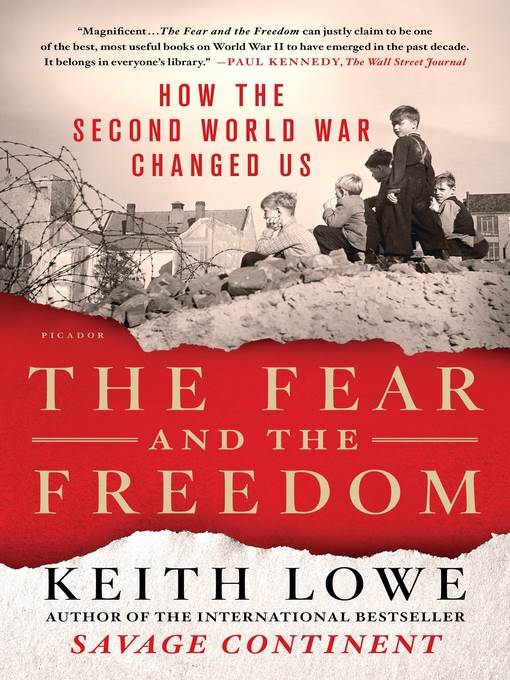
The Fear and the Freedom
How the Second World War Changed Us
- اطلاعات
- نقد و بررسی
- دیدگاه کاربران
نقد و بررسی

August 15, 2017
How 70 years of profound political, social, and cultural change resulted directly from World War II.In an ambitious history, Lowe (Savage Continent: Europe in the Aftermath of World War II, 2013, etc.) follows his study of the anarchy and devastation of postwar Europe with an overview of the effects of the war globally. Each of the chapters begins with the story of an individual who "was profoundly affected" by the events of the war. These case studies serve as a springboard for generalizations "about why our cities look the way they do today, why our communities are becoming so diverse, and why our technologies have developed in the way they have." The author argues, diffusely, that attitudes about human rights, efforts to reform our economic system, frustrated policies to achieve world peace, and unresolved quarrels and civil conflicts all result from the war. Lowe divides the book into sections: the war's generation of myths and legends, such as the hero, the martyr, and the victim; the striving for a Utopian future, "rational, enlightened and peaceful"; efforts toward international cooperation in economics, government, and law; the emergence of the U.S. and Soviet Union as polarizing superpowers; dreams of self-determination that gave rise to nationalist movements in Asia, Africa, Latin America, Israel, and Europe; and the "destructive legacies" that led to fragmentation and atomization, resulting in economic inequality and divisive identity politics. Lowe crafts interesting case histories of those he chooses as representative of these themes, but he finds himself tangled in contradictions throughout. The myth of communal rebirth, for example, "came into conflict with the myths of individual nations." Campaigns for equal rights were undermined by "the conservative tendencies of normal human nature." The author's claim that the war "united almost everyone in a general understanding of what was right and what was wrong" is contradicted by his revelation of pervasive ideological struggles, including "the conflict between the urge to draw together as one, and the urge to fragment into different and ever smaller groups." A sweeping but flawed history of a world defined by contradictions and conflict.
COPYRIGHT(2017) Kirkus Reviews, ALL RIGHTS RESERVED.




دیدگاه کاربران